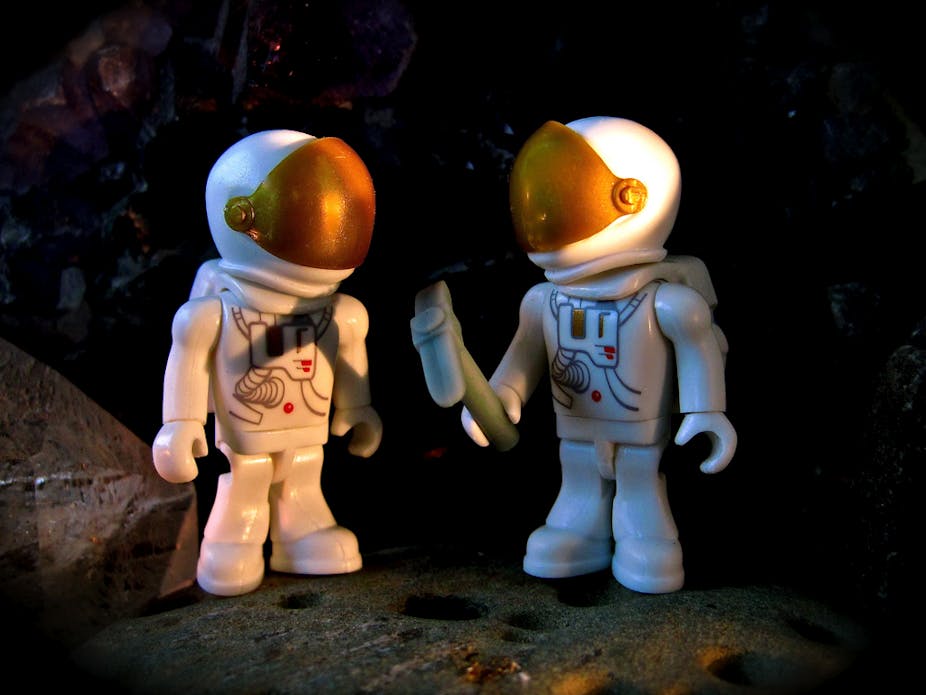The prospect of people settling away from Earth has been a topic for dreamers and visionaries for some time. But if it’s ever to happen for real, there needs to be more than starry-eyed optimism. There needs to be a business model, and ways of supporting the colonists.
The business model exists, and it’s one we’ve tried before. When Europe colonised the Americas (from 1492 onwards), it was the potential for mining which drew the colonists. Hernán Cortés’ conquest of Mexico and Francisco Pizarro’s of the Inca empire were partially about land they were annexing for Spain, but more important was the gold and other riches that could be extracted from that land. A similar opportunity exists in space, without the bloodshed of those conquests.
In 2012, the US-based company Planetary Resources was set up as a new venture to mine asteroids for water, rare minerals and other high-value materials. The gold we use on Earth is believed to have come from asteroids and was not on the earth when it was molten, and objects the size of planets have been discovered which are mainly diamond.
A rival to Planetary Resources, Deep Space Industries, is due to launch next week, looking for platinum.
On the moon, it is possible to mine water, but possibly the most useful resource is Helium-3, very rare on Earth but comparatively abundant on the moon. It can be used in fusion reactors.
The first uses for these mining applications would in fact not be to return them to Earth for exploitation, but to aid in other space activities, such as “refuelling” satellites or missions going further afield, such as to Mars. The colonists will need oxygen and water – not as dazzling as gold and diamonds, but more valuable. Oxygen and water can be extracted by mining and chemically processing the dust.
Of course, there are many barriers to setting up a mining operation in space. Machinery must be designed to work with different types of soils, in zero or low gravity. Automation of that equipment must be such that it needs little intervention from Earth. That automated equipment must be able to position itself without GPS. And it all must work first time, after exhaustive simulation on Earth.
Further, there are the legal issues – who owns those resources? Are existing treaties robust enough? How do you secure your mine? And there are the economics: how well has the geology been studied? Are you mining in the right place? Can a return be guaranteed?
These and many other related issues will be discussed at the Off-Earth Mining Forum, hosted by the Australian Centre for Space Engineering Research (of which I’m the director) at the University of New South Wales on February 20 and 21.
This is the first forum of its type in Australia, and possibly the world. The forum will allow the blue (black?) sky researchers to test their ideas with hard-headed miners. The extreme needs of space may well produce useful outcomes for terrestrial mining, particularly in the area of automation. There is also a logic to its being held in Australia.
It allows an industry where Australia is a world leader – mining – to assist in developing an area where Australia is weak – upstream space systems development. At a time when the Federal Government is preparing to release a national space policy, bold new initiatives like this can bring partnerships and business opportunities.
The Australia in the Asian Century white paper set the goal of lifting Australia’s productivity into the global top ten by 2025. A recent report from the UK has shown that mining and space are numbers one and three in terms of productivity by sector.
Mining is already well-developed in Australia, but improving its productivity has been a subject for recent debate. Australia developing upstream space capability will also be a strong driver to delivering the higher productivity the government seeks.
There are various estimates of when the first off-Earth mine will be established. Some say within a decade.
Whenever it is, it is highly likely it will be the next significant step in our colonisation of space.

